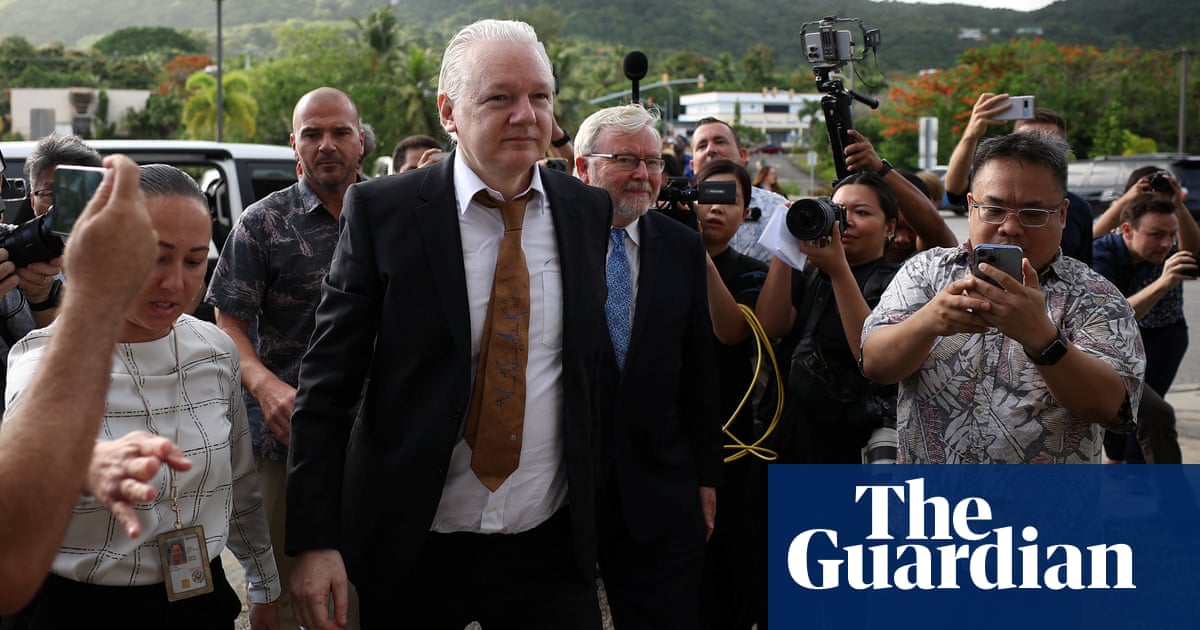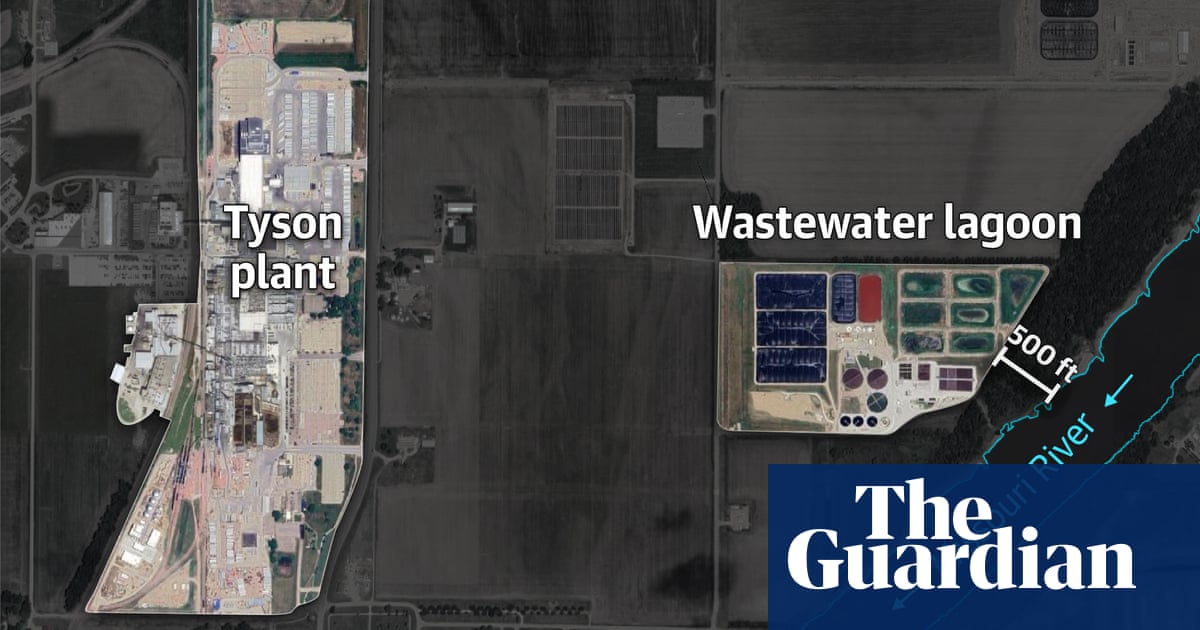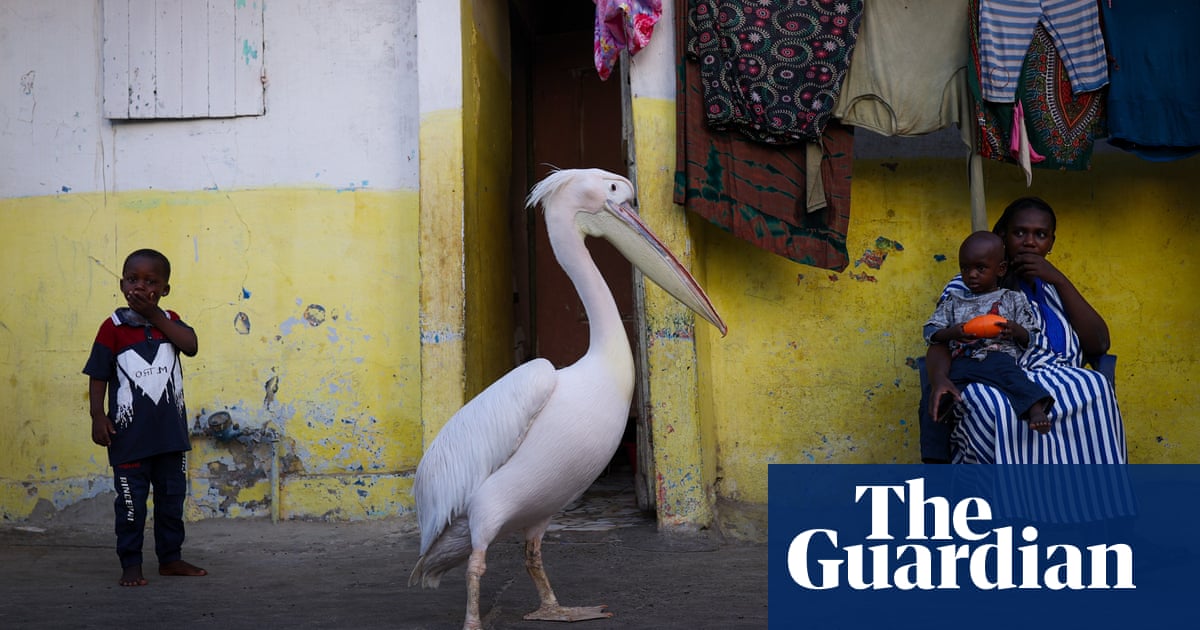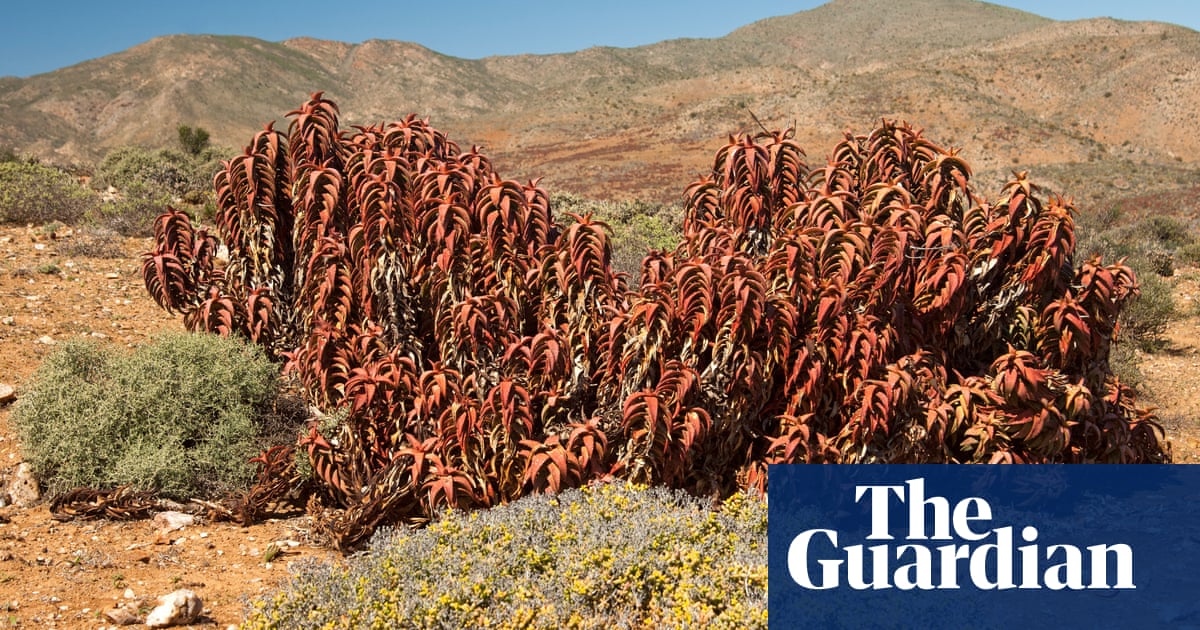WikiLeaks founder Julian Assange has pleaded guilty to a single felony charge for publishing US military secrets, in a deal with the US justice department that is expected to secure his freedom and conclude an extraordinary legal saga.
The plea was entered Wednesday morning in federal court in Saipan, the capital of the Northern Mariana Islands, a US commonwealth in the Pacific. Assange, who had flown to Saipan from London, arrived at court shortly before the hearing was to begin, wearing a dark suit with a tie loosened at the collar, and entered the building without taking questions.
He was accompanied by Australian ambassador to the US, Kevin Ruddand Australian high commissioner to the UK Stephen Smith. He was greeted by a hoard of foreign and local media, but did not stop to speak to the gathered press despite the questions being shouted at him, including whether he preferred the weather in Saipan to London.
The hearing is the culmination of the US government’s years-long pursuit of the publisher, who has been painted both as a hero of press freedom and a reckless criminal for exposing hundreds of thousands of sensitive military documents.
Inside the wood-panelled courthouse, at the foot of a lush hillside on Saipan’s coast, Assange said he believed the espionage act – under which he was charged – contradicted US first amendment rights, but that he accepted that encouraging sources to provide classified information for publication can be unlawful.
Under the deal with the US justice department, he will be free to leave the court due to time already served in a UK prison and to travel on to Australia to be reunited with his family.
The justice department agreed to hold the hearing on the remote island due to Assange’s opposition to travelling to the US mainland and because of its proximity to Australia, where he will return after he enters his plea.
The deal – disclosed on Monday in court papers – represents the final chapter in a more than decade-long legal fight over the fate of Assange, which saw him heralded by many around the world as a hero who brought to light US military wrongdoing in Iraq and Afghanistan, while others – including multiple US governments – said his release of secret documents put lives in danger.
Before being locked up in London, Assange spent years hiding out in the Ecuadorian embassy in London to avoid extradition to Sweden to face allegations of rape and sexual assault, which he has denied and which were later dropped by Swedish authorities.
The abrupt conclusion enables both sides to claim a degree of success, with the justice department able to resolve without trial a case that raised thorny legal issues and that might never have reached a jury at all given the plodding pace of the extradition process.
His wife, Stella Assange, told the BBC from Australia that it had been “touch and go” over 72 hours whether the deal would go ahead but she felt “elated” at the news. A lawyer who married the WikiLeaks founder in prison in 2022, she said details of the agreement would be made public once the judge had signed off on it.
“He will be a free man once it is signed off by a judge,” she said, adding that she still didn’t think it was real.
Assange on Monday left Belmarsh prison, where he has spent the last five years, after being granted bail during a secret hearing last week. He boarded a plane that landed hours later in Bangkok to refuel before taking off again toward Saipan. A video posted by WikiLeaks on X, showed Assange staring intently out the window at the blue sky as the plane headed toward the island.
“Imagine. From over 5 years in a small cell in a maximum security prison. Nearly 14 years detained in the UK. To this,” WikiLeaks wrote. The top Australian diplomat in the United Kingdom accompanied Assange on the flight.
With Associated Press and Reuters



